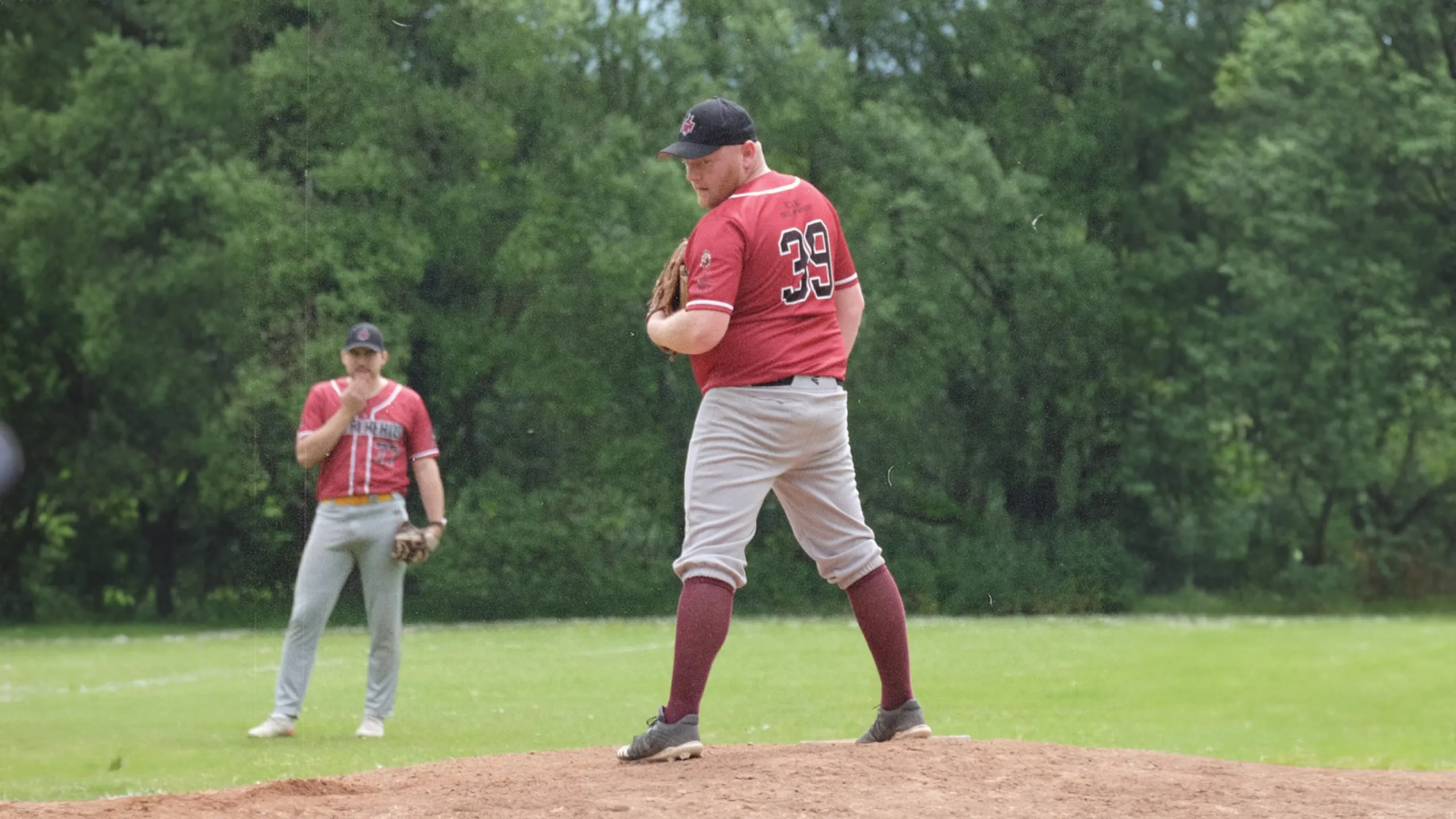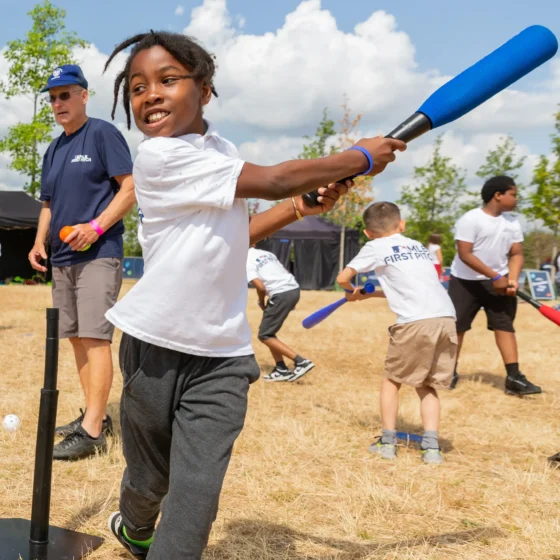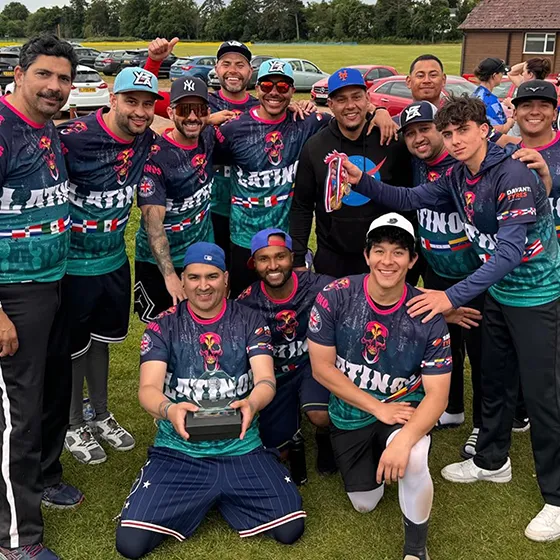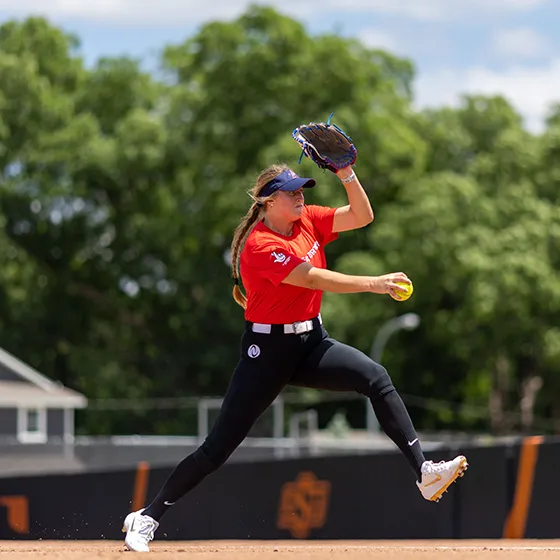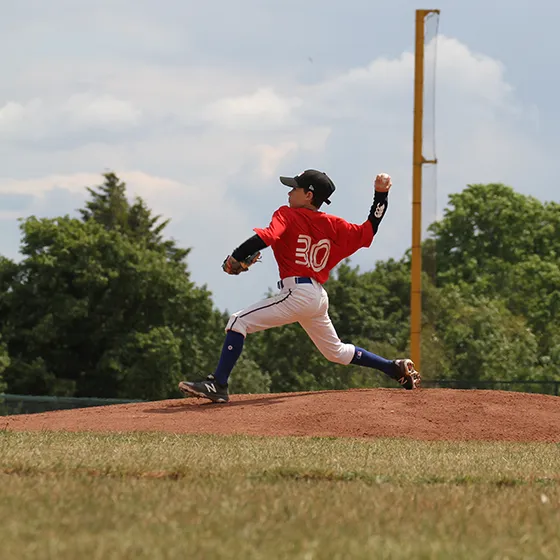Bob Rowe is an American who moved from Boston to Birmingham after university. Some years later, he’d rekindle his childhood love for baseball by joining Birmingham Baseball Club. These days he’s the chairman, head coach of the first team, and assistant coach for the youth team and Birmingham’s new women’s team.
To keep busy in the off season, Bob also runs a pitching clinic to offer his insight to players in the South West and Wales Baseball League. So whether you’re a rookie with the ball in hand, a seasoned hurler, or a coach looking to add to your skillset, read on for Bob’s top tips…
Start with the fastball
You don’t need a full arsenal of pitches from day one. Bob says new pitchers should start simple, with a solid fastball that is the foundation for every pitcher.
“Any normal coach will teach the standard fastballs. Probably try to mix in both types of fastball – a four seam and a two seam.”
Once that’s consistent, layering in off-speed and breaking pitches can take pitchers to the next level.
“In terms of breaking balls, sometimes coaches will focus on the curveball. I can throw a really good curveball so I know how to coach that.
“If guys can get a good shifting fastball and then some sort of off-speed breaking ball, then those are the key starting points.”
Mechanics can make or break a pitcher
Injuries don’t usually come out of nowhere. More often than not they’re the result of poor mechanics. It means that, for Bob, teaching good form isn’t optional. It’s essential.
“Most of the injuries you get is from not having correct mechanics, as we put it. You might get a lot of strain in your bicep, shoulder, or elbow. Sometimes you get strain in your wrist, but for the most part, those are the key areas. And it’s all to do with not throwing properly.”
Teaching proper form early isn’t just about performance, it’s about preventing long-term damage. Fatigue, of course, is normal. But recurring pain is a red flag. It’s better to slow down and throw right than to rush and end up sidelined.
“Most of the time you’ll get fatigue in those areas anytime you throw. But genuine pain is always due to poor mechanics.”
There’s no one-size-fits-all method
Each player is different. Being flexible and adapting your approach can make all the difference. “It’s important to be able to adapt and coach in different ways for different people, just like a teacher,” says Bob.
Avoid the trap of rigid coaching. What works for one pitcher may not work for another. Be flexible in your style, and never assume your way is the only way. Players respond differently to cues, drills, and feedback, so try to meet them where they are.
“The one thing that I would say for coaches not to do is think that their way is the only way. That might work for some, but it won’t work for many.”
“It’s important to be able to adapt and coach in different ways for different people, just like a teacher,”
Coach-ability is king
Great pitchers aren’t just born — they’re built through trust, communication, and open-mindedness. And so while mechanics matter, Bob believes that a player’s willingness to listen and adapt is arguably the most valuable trait.
“It’s not even just about technique. It’s about willingness to listen and being coachable. Every coach in any sport will tell you that. If you’re willing to listen and change things that your coach thinks could be better, then that’s the best you can hope for.”
Every coach is still a student
Great coaching comes from experimentation and evolution. Not every technique or drill will work for every player, but that’s fine. Bob says that good coaches are always testing, learning, and evolving.
“Every day is a school day, even from a coaching perspective. “You can do certain things and realise that they don’t work. Then do other things and find that it does work. So you expand on that.”
Feel free to borrow ideas, test them, and disregard any that don’t work for your team. The best coaches stay humble and curious, always tweaking their approach.
“Rely on other things you find online, but if you have your own ideas, don’t be scared to try them. If they don’t really help anybody, then don’t do it again. But it never hurts to try.”
Start them young
Try to tailor your coaching sessions so that they’re accessible from an early age. Coaching younger players not only keeps the sport alive, but creates long-term community engagement.
“Just seeing people develop and seeing how the club has grown since I started with it has been really positive. Especially now that we’re expanding into the youth side of things, not just because I have my own son who’s on the team, but because it is the future.”
“We can’t just rely on guys who are in their 20s or 30s or 40s rocking up and playing for a few years until they get bored with it or too injured to play anymore. Next year we’re going to look at doing a T-ball type setup, which will be absolutely insane, with five seven-year-olds in it.”
Find out more about Birmingham Baseball Club










